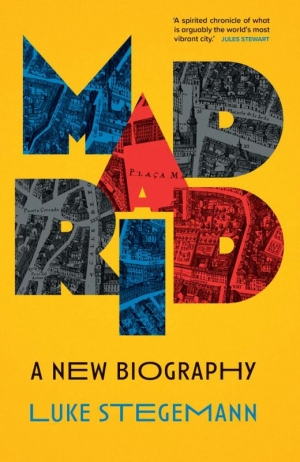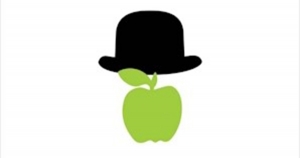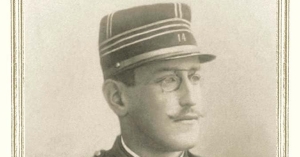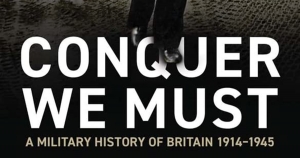Yale University Press
Abi Stephenson reviews ‘Madrid: A new biography’ by Luke Stegemann
‘Well, I always liked Madrid!’ is my father’s verdict on the city; a verbal shrug that manages both to damn with faint praise and gesture at a powerful, unspoken criticism. There is some truth in both: Madrid often finds herself crowded out of ‘Great Cities of the World’ lists and has struggled to win top billing as a tourist attraction, even within Spain itself. The perpetual bridesmaid, despite her official capital status (hello Ottawa, Ankara, and Canberra), she has long been forced to hold the glittering train of Gaudí’s Barcelona. It has taken the zeal and outsider’s gaze of a convert – the accomplished Australian writer and honorary madrileño, Luke Stegemann – to draw her from the shadows in a self-described ‘expression of love … and act of recovery’.
... (read more)John Hawke reviews ‘Why Surrealism Matters’ by Mark Polizzotti
Like its precursor movements in the modernist avant-garde (Futurism, Cubism, Dada), Surrealism was primarily initiated as an innovation in poetry. The central Surrealist activities were the collaborative experiments in automatic writing, influenced by psychologist Pierre Janet’s Psychic Automatism (1889) and, in poetics, by Pierre Reverdy’s theory of the image as ‘the juxtaposition of two more or less distanced realities’. These experiments, undertaken between 1919 and 1923 by André Breton and his associates (Phillippe Soupault, Louis Aragon, Paul Eluard, Robert Desnos, and others), provide the theoretical basis for Breton’s 1924 ‘Manifesto of Surrealism’, the main tenets of which he would follow consistently for the next forty years.
... (read more)Ian Parmeter reviews ‘How to Lose a War: The story of America’s intervention in Afghanistan’ by Amin Saikal
Though scarcely a teenager at the time, I remember clearly what I was doing when I heard the news of John F. Kennedy’s assassination in 1963. That was a seminal event for the baby-boomer generation – not only in the United States, but around a then barely globalised world. I suspect the equivalent event for young adults today is the horrifying television footage, rebroadcast countless times since, of two passenger aircraft being deliberately flown into the twin towers of New York’s World Trade Center on 11 September 2001.
... (read more)Peter McPhee reviews ‘Alfred Dreyfus: The man at the center of the affair’ by Maurice Samuels
Jews are central to narratives of the history of modern France. One narrative thread concerns a story of civic emancipation from the time when Jews were first granted equal rights during the French Revolution until the present, when Prime Minister Gabriel Attal is not only France’s youngest postwar prime minister but also, like his predecessor Élisabeth Borne, of Jewish ancestry. The other narrative thread is of continuing anti-Semitism, most obvious in the Vichy government’s active participation in the deportation of Jews during World War II and still evident in the hundreds of anti-Semitic incidents reported in France every year. The Dreyfus Affair is pivotal to both narratives.
... (read more)Andrew van der Vlies reviews 'Retroland: A reader’s guide to the dazzling diversity of modern fiction' by Peter Kemp
In the dying months of the last century, I took a crash course in Modern British Fiction. I had opted for the most contemporary course on the Oxford English MPhil that covered the most contemporary period (1880 to the present, then generally understood to have ended circa 1970). My elective choices had all been a little unpopular: rather than a term parsing Ulysses, I read all of Conrad; where the crowd chose Pound or Eliot for the poetry elective, I turned up at St John’s each week to talk about Yeats.
... (read more)Stuart Kells reviews 'Seven Crashes: The economic crises that shaped globalisation' by Harold James
This fascinating and frustrating volume is really three books in one: a compilation of revelatory portraits of seven modern economic crises; a beautiful essay on language, literature, and finance; and an effort to draw lessons from the seven calamities. Of the three books, two are brilliant, one less so.
... (read more)Ben Brooker reviews 'Psychonauts: Drugs and the making of the modern mind' by Mike Jay
In his 1927 essay ‘On Being One’s Own Rabbit’, the British-Indian scientist and writer J.B.S. Haldane surveyed the history of an enduring but contentious approach to scientific discovery: self-experimentation. At the age of eight, Haldane tested poison gases on himself in his scientist father’s home laboratory. As an adult, among other self-experiments occasioning losses of consciousness from ‘blows on the head, from fever, anaesthetics, want of oxygen and other causes’, he once induced sufficiently high levels of oxygen saturation to suffer a violent seizure and the crushing of several vertebrae.
... (read more)Joan Beaumont reviews 'Conquer We Must: A military history of Britain 1914–1945' by Robin Prior
Robin Prior opens this monumental military history by stating that Britain was the only power on the Allied side in both world wars to fight the regimes of Kaiser Wilhelm II’s Germany, Nazi Germany, fascist Italy, and imperialist Japan ‘from beginning to end’. Some might quibble. Was not 1937 the beginning of the war against Japan? But few could doubt that Britain’s sustained war effort in both world wars was remarkable. Even though victory often seemed uncertain and the cost in casualties, human grief, economic dislocation, and financial ruin was immense, the nation continued to exhibit ‘stern resolve’, believing that ‘conquer we must’.
... (read more)A six-year-old in Canada memorises a poem written by Li Bai in the eighth century. She recites its twenty syllables perfectly in the Mandarin she studies at Saturday Chinese school, but beyond a mechanical conversion into English, makes little sense of it. Murmuring the poem’s words then holding her breath as though waiting, her mother tries to help.
... (read more)Benjamin Madden reviews 'Critical Revolutionaries: Five critics who changed the way we read' by Terry Eagleton
For generations of English literature graduates in the Anglophone world, Terry Eagleton’s name has become synonymous with literary theory, not because he has been its leading practitioner or fiercest advocate, but because he published Literary Theory: An introduction in 1983. This widely assigned primer conceals a deep ambivalence behind its innocuous title: in his conclusion, Eagleton announces that the book has been ‘less an introduction than an obituary’, in the sense that ‘literary theory’, like literature itself, only pretends to name a bounded field of enquiry. Nonetheless, the enterprise of theory rumbled on largely untroubled for two decades (who knows how many of the undergraduates assigned the book made it to the conclusion), and so After Theory (2003) was much less demure: ‘The golden age of cultural theory is long past,’ Eagleton announces on page one. In the preface to the same work he remarks, with disarming bluntness, that theory’s contemporary orthodoxy fails to ‘address itself to questions searching enough to meet the demands of our political situation.’
... (read more)









